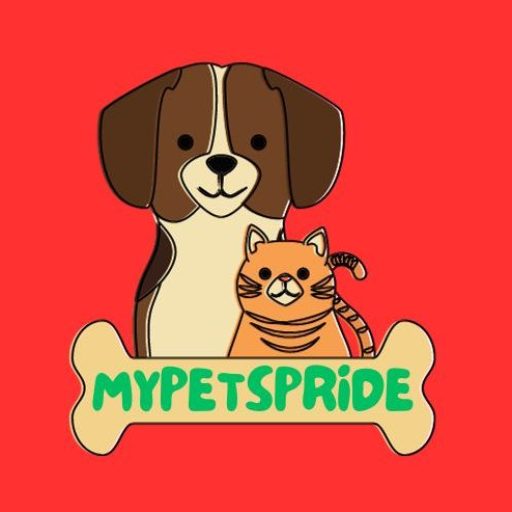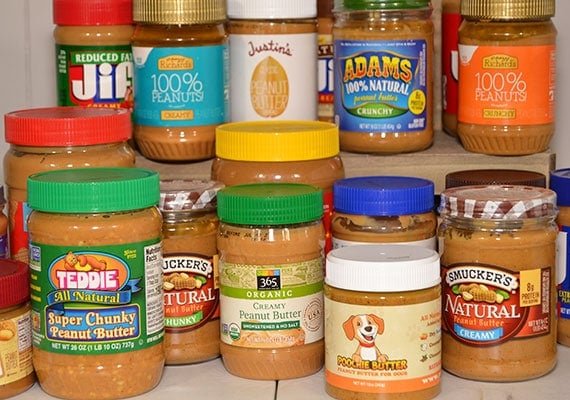Peanut butter is safe for dogs to eat as long as it does not contain xylitol. Xylitol is a sugar substitute that is toxic to dogs.
Most peanut butter brands do not contain xylitol, but it is important to check the ingredient list to ensure its absence. Peanut butter is a popular and tasty treat for many humans, but what about dogs? Can they enjoy this creamy spread as well?
The answer is yes, peanut butter can be safe and even beneficial for dogs, as long as it is the right kind. However, there are some important factors to consider to ensure the peanut butter is safe for your furry friend. We will explore whether peanut butter is good for dogs, what ingredients to avoid, and how much peanut butter is appropriate for your pup. So let’s dig in and find out if peanut butter is a healthy and enjoyable treat for our canine companions.
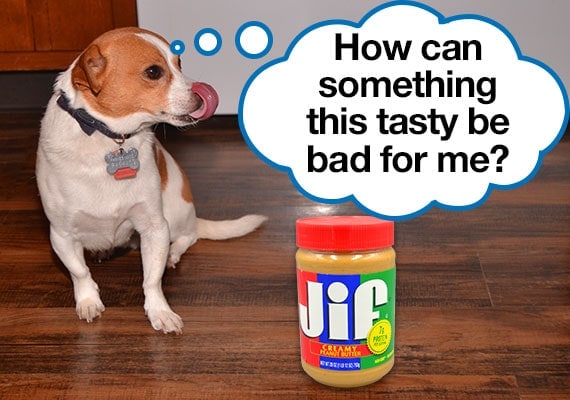
Credit: doglab.com
Is Peanut Butter Safe For Dogs?
Peanut butter is a popular treat among humans, but is it safe for our furry friends? While peanut butter can be a tasty and nutritious snack for dogs, pet owners need to be cautious about certain varieties that can be harmful to their canine companions.
Regular Peanut Butter
The good news is that regular peanut butter is safe to give your dog as a treat. It can be a great source of protein and healthy fats. However, it’s important to keep in mind that moderation is key. Peanut butter is high in calories, so it’s best to offer it in small amounts to prevent weight gain or digestive issues. Additionally, choose peanut butter brands that are free from added sugars, salt, and preservatives.
Peanut Butter With Xylitol
Peanut butter with Xylitol, on the other hand, is toxic to dogs. Xylitol is a sugar substitute that is commonly used in many lower or sugar-free peanut butter products. It can cause a dangerous drop in blood sugar levels and lead to liver failure in dogs. It’s crucial to always check the label before sharing peanut butter with your furry friend and avoid any products that contain Xylitol.
Conclusion
In conclusion, while regular peanut butter can be a safe and delicious treat for dogs, it’s important to be aware of the potential dangers of peanut butter with Xylitol. Always read the labels and choose peanut butter that is free from harmful additives. With proper moderation and caution, peanut butter can be a happy and healthy addition to your dog’s diet.
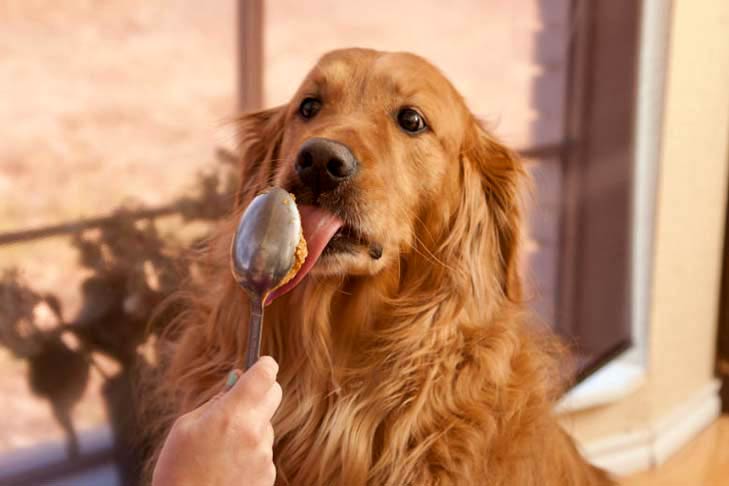
Credit: www.akc.org
Benefits Of Peanut Butter For Dogs
Peanut butter can be a delicious and nutritious treat for dogs. It is a great source of protein and healthy fats, and contains vitamins B and E, and niacin. However, it’s important to choose peanut butter without xylitol, a sugar substitute that is toxic to dogs.
Is Peanut Butter Good for Dogs? Peanut butter is not only a favorite treat for humans but also a popular delicacy for our furry friends. But is peanut butter good for dogs? The answer is yes, peanut butter can be beneficial for dogs when given in moderation. It offers several benefits such as being a source of protein, providing healthy fats, and containing essential vitamins and minerals. Let’s explore these benefits in more detail.Source Of Protein
Protein is an essential component of a dog’s diet as it helps in building and repairing tissues, as well as supporting a strong immune system. Peanut butter contains a fair amount of protein, making it a nutritious treat for your dog. Including peanut butter in their diet can contribute to the overall development and maintenance of their muscles and tissues.Healthy Fats
When it comes to fats, not all types are created equal. Peanut butter contains healthy fats, such as monounsaturated and polyunsaturated fats. These fats are beneficial for dogs as they support their cardiovascular health and help to maintain a glossy and healthy coat. Including a small amount of peanut butter can provide these essential fats to your furry friend.Vitamins And Minerals
In addition to protein and healthy fats, peanut butter also contains various vitamins and minerals that are beneficial for dogs. It is a good source of vitamin E, which acts as an antioxidant, protecting the cells from damage caused by free radicals. Peanut butter also contains small amounts of B vitamins, such as niacin, which assist in energy metabolism, brain function, and the health of the skin and coat. To summarize, including peanut butter in your dog’s diet can provide them with a good source of protein, healthy fats, and essential vitamins and minerals. However, it’s important to note that moderation is key. Too much peanut butter can lead to weight gain and digestive issues in dogs. Always check the label and choose peanut butter without any added sugars or artificial sweeteners, like xylitol, which can be toxic to dogs. When given as an occasional treat, peanut butter can be a tasty and nutritious addition to your dog’s diet.Potential Dangers Of Peanut Butter For Dogs
Peanut butter can be a delicious and nutritious treat for dogs, but there are potential dangers to be aware of. Some peanut butter brands contain xylitol, a sugar substitute that is toxic to dogs. It’s important to avoid peanut butter with xylitol and only give your dog regular peanut butter as an occasional treat.
Can Dogs Eat Peanuts?
Peanuts, in their raw form, contain a high amount of fat and can be difficult for dogs to digest, leading to stomach discomfort and potential pancreatitis. Raw peanuts may also pose a choking hazard for dogs due to their size and hard texture. It is best to avoid feeding your furry friend raw peanuts to prevent any potential health issues.
Moderation And Portion Control
While peanut butter can be a tasty treat for dogs, it is important to practice moderation and portion control. Peanut butter is high in fat and calories, so excessive consumption can lead to weight gain and obesity, which may contribute to other health problems. Additionally, some varieties of peanut butter may contain additives like salt or sugar, which can be harmful to dogs in large amounts. Therefore, it is essential to read labels and choose peanut butter that is free from harmful additives and provide it to your pup in moderate quantities as an occasional treat.
While peanut butter can be a safe and enjoyable treat for dogs, there are potential dangers to be aware of. Firstly, some brands of peanut butter may contain an artificial sweetener called xylitol, which is highly toxic to dogs even in small amounts. Xylitol can cause a rapid release of insulin in dogs and result in a dangerous drop in blood sugar levels. Therefore, it is crucial to always read the ingredient list and avoid peanut butter products that contain xylitol.
Secondly, peanut butter, especially the chunky variety, can pose a choking hazard for dogs, particularly those with smaller mouths or those prone to gulping their food. It is important to monitor your dog while they enjoy their peanut butter treat to prevent any choking incidents.
Lastly, peanut butter, due to its high fat content, may lead to gastrointestinal upset in some dogs, causing diarrhea or stomach discomfort. If you notice any negative symptoms after feeding your dog peanut butter, it is recommended to consult with your veterinarian.
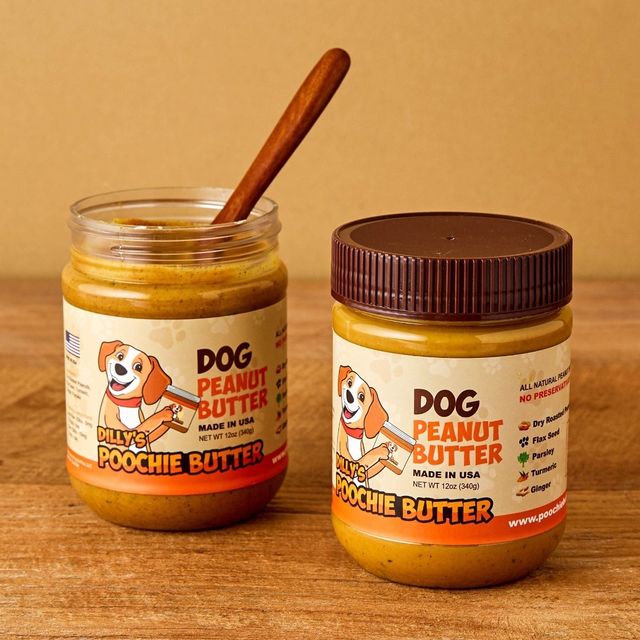
Credit: www.poochiebutter.com
Choosing The Right Peanut Butter For Dogs
Choosing the right peanut butter for dogs is essential to ensure their safety and health. While regular peanut butter is generally safe, it’s important to avoid brands that contain xylitol, a sugar substitute that can be toxic to dogs. Opt for peanut butter without any added sweeteners or salt for a wholesome treat.
When it comes to sharing a delicious treat with your furry friend, peanut butter is a popular choice. Not only is it tasty, but it also provides some health benefits for dogs. However, it’s crucial to choose the right peanut butter for your four-legged companion. Below, we’ll explore the factors to consider when selecting peanut butter for dogs to ensure their safety and overall well-being.Avoid Peanut Butter With Xylitol
Xylitol, a sugar substitute commonly found in lower or sugar-free products, is extremely dangerous for dogs. Therefore, it’s important to avoid giving them any peanut butter that contains this toxic ingredient. Even small amounts of xylitol can be fatal to dogs, so it’s crucial to read the labels carefully. To keep your pup safe, always opt for peanut butter products that do not include xylitol.Check Ingredients
To ensure you provide the best peanut butter for your furry friend, it’s essential to check the ingredients list. Apart from avoiding xylitol, you should also look out for other harmful substances. Some peanut butter brands may contain added salt, sugar, or artificial sweeteners that are not suitable for dogs. Opt for peanut butter with minimal ingredients and the fewest additives possible. When selecting peanut butter for your dog, choose natural varieties that contain only peanuts and possibly a small amount of salt. Organic options are even better, as they are free from pesticides and other potentially harmful chemicals. By thoroughly examining the ingredients, you can make an informed decision and keep your dog’s health in check.Natural Or Homemade Options
While there are numerous peanut butter products available in stores, you may also consider natural or homemade options. Natural peanut butter, made with just peanuts and possibly a pinch of salt, can be a healthy choice for dogs. It lacks the additives and preservatives typically found in commercial brands. If you enjoy spending time in the kitchen, you could even create your own homemade peanut butter. All you need is a food processor and a bag of unsalted peanuts. Simply process the peanuts until they turn into a smooth and creamy spread. Homemade peanut butter allows you to have complete control over the ingredients, ensuring that it is safe and healthy for your furry friend. In conclusion, when it comes to choosing the right peanut butter for dogs, it’s essential to prioritize their health and well-being. Avoid peanut butter with xylitol, check the ingredients list for any harmful additives, and consider natural or homemade options. By making informed choices, you can treat your furry companion to a delicious and safe snack that they’ll love.Frequently Asked Questions For Is Peanut Butter Good For Dogs?
How Much Peanut Butter Can You Give A Dog?
You can give your dog peanut butter as a treat, but make sure it doesn’t contain xylitol, which is toxic to dogs. Avoid sugar-free peanut butter and limit the amount to avoid excessive calories.
Which Peanut Butter Is Safe For Dogs?
Regular peanut butter is safe for dogs as a treat. Just avoid peanut butter with Xylitol, a toxic ingredient. JIF peanut butter is safe for dogs, but the ones with added salt are not ideal for regular snacking. Look for the “JIF Natural” series with reduced sugar and salt.
Some peanut butter brands contain Xylitol, which is toxic to dogs, so be cautious. Peanut butter can be a delicious and nutritious treat for dogs in moderation.
Is Jif Peanut Butter Ok For Dogs?
Yes, Jif peanut butter is safe for dogs. It does not contain xylitol, but it does have added salt. It is best used as an occasional treat. If looking for a healthier option, consider the “JIF Natural” series with reduced sugar and salt.
What Peanut Butter Contain Xylitol?
Peanut butter containing xylitol is not safe for dogs. Avoid peanut butter with xylitol as it can be toxic to dogs. Stick to regular peanut butter for your furry friend.
Conclusion
While peanut butter can be a delicious treat for dogs, it’s important to choose the right kind. Regular peanut butter without xylitol is safe to give your furry friend as an occasional snack. However, it’s essential to avoid peanut butter with added sugars and salts.
Moderation is key when feeding peanut butter to dogs, as too much can lead to weight gain or other health issues. Always consult with your veterinarian to ensure you’re making the best choices for your beloved pet.
